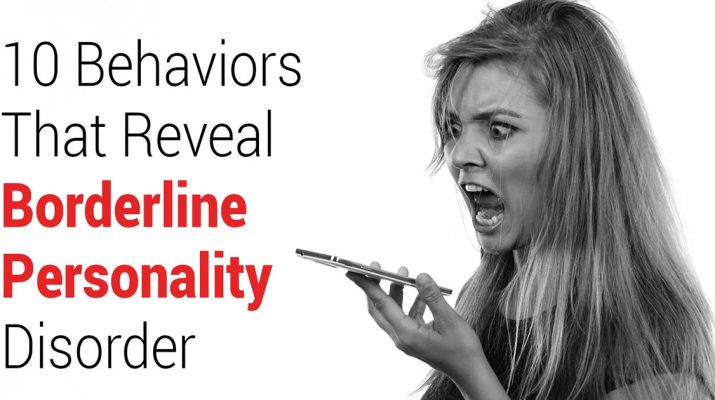Are you curious about the misunderstood topic of Borderline Personality Disorder? Mental health is one of those topics that can always feel intimidating.
or many people, fighting through the societal stigma of mental illnesses like and what it means to other people can be daunting enough. And, let alone actually mustering the courage to seek treatment for it. Unfortunately, this is also one of the reasons why people don’t seek treatment in the first place.
Are you someone who is worrying about whether or not you’re suffering from a mental illness? If so, we understand that this can be a difficult time for you to open up about your feelings. This is why it’s important to familiarize yourself with symptoms of various mental illnesses. Also, you must seek help.
Because Borderline Personality Disorder is something that is widely misunderstood by a majority of the population, we wanted to provide you with 10 symptoms to keep track of. Familiarize yourself with the following symptoms. Only then can you help to dispel any myths about this mental illness.
10 Behaviors That Can Indicate Borderline Personality Disorder
Borderline Personality Disorder that both in public opinion and the media misrepresent frequently. This is why we’ve created a list of 10 symptoms that can indicate the condition:
#1. Impulsiveness (To A Fault)
It’s no secret that everyone can be impulsive every once in a while. This is a natural way to make mistakes and subsequently learn from them. However, if you are somebody who is unable to not be impulsive, then you might want to consider whether or not it is the result of an underlying mental illness.
Impulsiveness might also be a harmful thing when it begins to affect your life and your loved ones. For example, if you are somebody who has trouble staying in relationships due to fear and doubts that settle in, this might be a sign of mental illness. However, it’s also worth noting that this behavior is not necessarily indicative of Borderline Personality Disorder (i.e. Obsessive Compulsive Disorder also includes significant worry), so you should check with a medical professional to get their opinion.
Being impulsive can also be quite alarming when it is the intention. Though some people feel as though their impulsiveness is the result of being chronically lazy, others can’t resist the urge to sabotage their own life through impulsiveness.
This can be problematic when it allows someone to tarnish their life in ways that they might not be able to recover from. This is why a medical professional should diagnose and treat excessive impulsiveness.
#2. Feelings Of Depression
If you feel unrelenting sadness that you can’t quite place, it might be possible that you’re dealing with some form of depression. This doesn’t necessarily mean that depression can only happen when there isn’t a reason, though. In fact, many people who experience trauma or loss might spin into depressive episodes as an afterthought. On top of this, depression can also be a symptom of Clinical Depression, among many other mental illnesses.
#3. Unstable Relationships With Others
Those who suffer from Borderline Personality Disorder often experience very short-lived relationships due to different emotional levels not allowing them to maintain constant connections. If you are somebody who experiences something of this nature, it’s important that you recognize it before it becomes a serious issue.
If you are in a relationship with someone who appears to have Borderline Personality Disorder, you should show compassion whenever possible. Trying to communicate honestly regardless of the situation is a cornerstone to a healthy relationship.
#4. Having Uncontrollable Anger
Many of us can feel very upset and find it difficult to calm down sometimes, but those dealing with Borderline Personality Disorder might find it impossible to calm down. If you constantly feel upset at the smallest things, it might indicate an underlying mental disorder. On top of this, it is important that you receive help to make sure that your anger doesn’t eventually cause you to harm yourself or someone else.
#5. Emotional Episodes
Those who suffer from personality disorders often chronicle their life as being split up into parts. This is often due to one’s emotional foundation continually changing, something that causes their life to feel fragmented. These fragments are called episodes. Episodes are often a key indicator of a mental illness being present, causing those afflicted by the condition to feel like their life does not have sufficient stability as a result.
#6. Harm Ideation
Harm ideation is one of the most severe parts of dealing with Borderline Personality Disorder. This often manifests in the form of one’s brain contemplating thoughts of self-harm or harming others. If you are experiencing any of these feelings, it is important that you contact a medical professional immediately. For the sake of convenience, the National Suicide Prevention Lifeline is 1-800-273-8255.
#7. Shifting Sense Of Self
Have you ever looked in the mirror one day and felt that you were disconnected from your body? What about having constant worries about who you are as a person, not being convinced that you are living your life to its fullest potential? These can both be signs of a shifting sense of self, something that is particularly unhealthy because it causes an individual to not feel comfortable in their own body or decisions. This is a unique symptom as it can manifest both in feelings of dissociation or severe doubt.
#8. Feeling Unfulfilled
This symptom is a bit similar to experiencing depression but is different due to the fact that it can feel more specific. While depression can take on many forms and sometimes just indicate a general sense of melancholy, feeling unfulfilled can make someone feel as though their life is generally pointless and out of their control. This can be a particularly stressful feeling to deal with, requiring those afflicted to seek immediate medical attention, if possible.
#9. Not Feeling In Control Of Your Emotions
If you’re somebody who is having trouble separating your own emotions, it could be a sign of Borderline Personality Disorder. Of course, it’s important to acknowledge that our mood can change due to our behavior or someone else’s behavior. But these types of change are more natural.
For example, if you are walking down the street and suddenly feel your mood drastically change, that can be a sign of an underlying mental illness. To the same effect, sudden emotional changes in conversation might go unnoticed. However, it can still be significant warning signs.
#10. Unresolved Trauma
Many people who deal with mental illness might report it as having been a sudden change in their life or behavior. This can manifest in a variety of different ways. However, sometimes it is due to unresolved trauma in their past. Unresolved trauma can be from 10 years ago or 10 days ago. Unfortunately, it can still be equally problematic for someone.
It is also possible for someone’s trauma to come bubbling up to the surface after a long period of time—it doesn’t have to be constant. Trauma is a unique thing in the sense that it can completely change the way your brain works, causing potential mental illness to also form or be provoked.
If you are or have been a victim of trauma, it is important that you see a mental health professional if you have not already dealt with the condition. If you don’t do this, you risk other types of mental health conditions becoming more present later in life.
Final Note About Borderline Personality Disorder
As we wrap up our list of symptoms, it is important to note that those who are feeling as though their mental health is unstable should see a medical professional. No amount of internet-based research replaces the effectiveness of a doctor’s appointment. So, you should keep this in mind if you are feeling particularly vulnerable.
Do you need help? Are you worried you’ll harm yourself or someone else? Then, immediately call the National Suicide Prevention Lifeline at 1-800-273-8255.
The symptoms listed above are not necessarily indicative of feelings that are exclusive to Borderline Personality Disorder. For example, a symptom as flexible as depression can be seen in many other types of mental illnesses. Those might include Clinical Depression, Bipolar Disorder and others.
A final precaution regarding this article is that you should not use it to monitor or diagnose issues. Psychoanalyzing other people is not a healthy practice and more often than not contributes to the stigmatization of mental health. However, if you are concerned about someone in your life, it is possible for you to let them know that you care for them. And, always recommend that they try and see a specialist.


